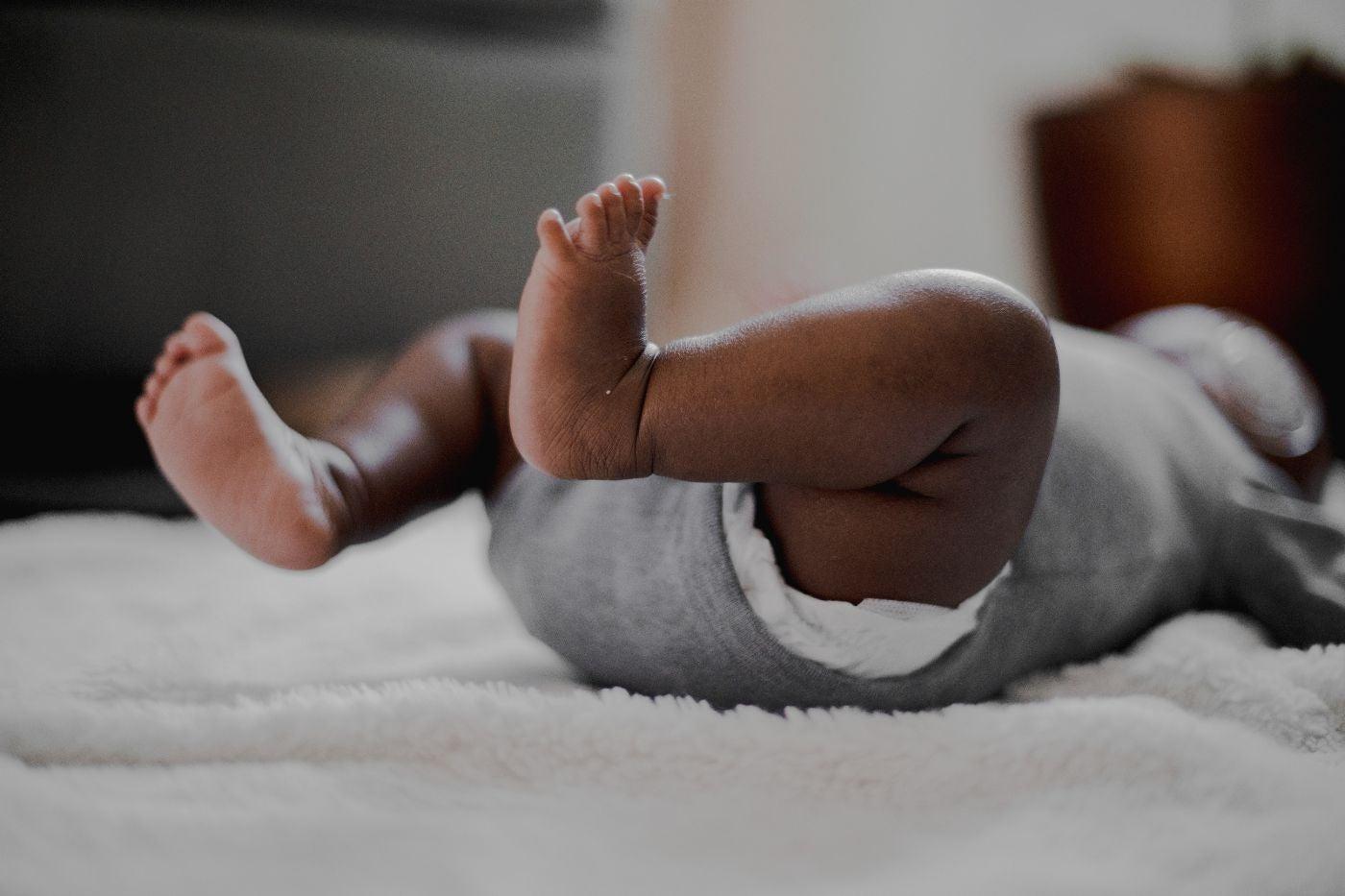BABY
Is My Newborn's Poop Normal?
Be prepared for weird-looking poo!

Written by
Dr. Harvey Karp

Baby Poo Guide
Few new parents are prepared for how weird baby poo looks…especially when it comes to newborn poo colour! But do not worry. Here is our down-and-dirty guide to baby poo:
First Baby Poo
Your brand-new bundle of joy will probably bless you with her first poo within 24 hours of her birth. That first poop is the strangest one… it is made up of everything the baby was ingesting within the womb like amniotic fluid and water. This first bowel movement is called meconium and is sticky dark greenish-black in colour. Luckily, in the next few days, your baby’s poo will get waterier and lighten in colour.
Poo of a Breastfed Baby
If you are breastfeeding your sweet honey, her poo will be yellowish and runny. Some babies have a bowel movement after every breastfeeding session…while others only have 3-4 daily. By the time your baby is around one to two months old, the poo will thicken to the consistency of oatmeal and occur once a day or less. Do not worry about calling your paediatrician unless your baby does not have a seriously dirty nappy for more than 3 days… but call sooner if your baby has a weak cry, weak suck, or is acting sick.>
Poo of a Formula-Fed Baby
If you are formula-feeding, your little one’s poo will be thicker and firmer—like peanut butter. The colour can range from yellow to tan to brown to green. Around her 1- to 2-month birthday, your little one may start to go a few days between bowel movements. This is normal!
Solid Food Poo
According to the National Health Service, you should begin introducing your little one to solid foods around 6 months of age. Once you do that, you will notice her poo changes. It will become browner and thicker…and smellier! Did you ever think you would miss those newborn poo days?
Baby Poo Colour Guide
- Green Baby Poo: Green baby poo does not mean anything bad. Typically babies have green poo if they are given iron supplements, or at 6 months when they are introduced to solid green foods such as pureed peas and spinach.
- Orange, Yellow and Brown Baby Poo: Orange, yellow, and brown baby poo is common in breastfed and bottle fed babies.
- Black Blood in Baby Poo: If your baby’s poo has specks of black blood in it, then it means your baby has digested blood while breastfeeding. This is not a cause for alarm, however, you may want to check with your paediatrician to make sure the blood is not a symptom of something more serious.
Baby Poo Colour Warning Signs
Odds are, you will not have to call your paediatrician about your baby’s poo but it is good to know when to take that step. If you notice your baby has poo that looks like the ones below, then make sure to contact your paediatrician immediately.
- Runny Baby Poo: Runny poo or diarrhea that is green, yellow, or brown can be an indication of an infection or allergy.
- Hard, Pebble-like Baby Poo: If your baby has hard, pebble-like poo, then he/she may be suffering from constipation. This can be quite common when your baby is first introduced to solid foods, but can also be a symptom of sensitivity to milk, soy, or lack of tolerance to something in breast milk or formula.
- Red Blood in Baby Poo: Sometimes baby poo can turn red because of food or liquids such as tomatos, beets, or fruit punch. However, red baby poo can also be a sign of blood in the stool. This can be a sign of a milk protein allergy or bacterial infections.
- Green Mucus in Baby Poo: Slimy, green mucus in your baby’s poo can be a sign of an infection. You will notice that mucus in poo looks like green-coloured streaks with glistening strings.
- White Baby Poo: Chalky baby poo that is gray or white in colour can be a sign that your baby is not digesting food properly, or that there is a lack of bile in the liver.
Disclaimer: The information on our site is NOT medical advice for any specific person or condition. It is only meant as general information. If you have any medical questions and concerns about your child or yourself, please contact your health provider. Breastmilk is the best source of nutrition for babies. It is important that, in preparation for and during breastfeeding, mothers eat a healthy, balanced diet. Combined breast- and bottle-feeding in the first weeks of life may reduce the supply of a mother's breastmilk and reversing the decision not to breastfeed is difficult. If you do decide to use infant formula, you should follow instructions carefully.
SHARE THIS ARTICLE
PARENT PICKS
Bestsellers



















